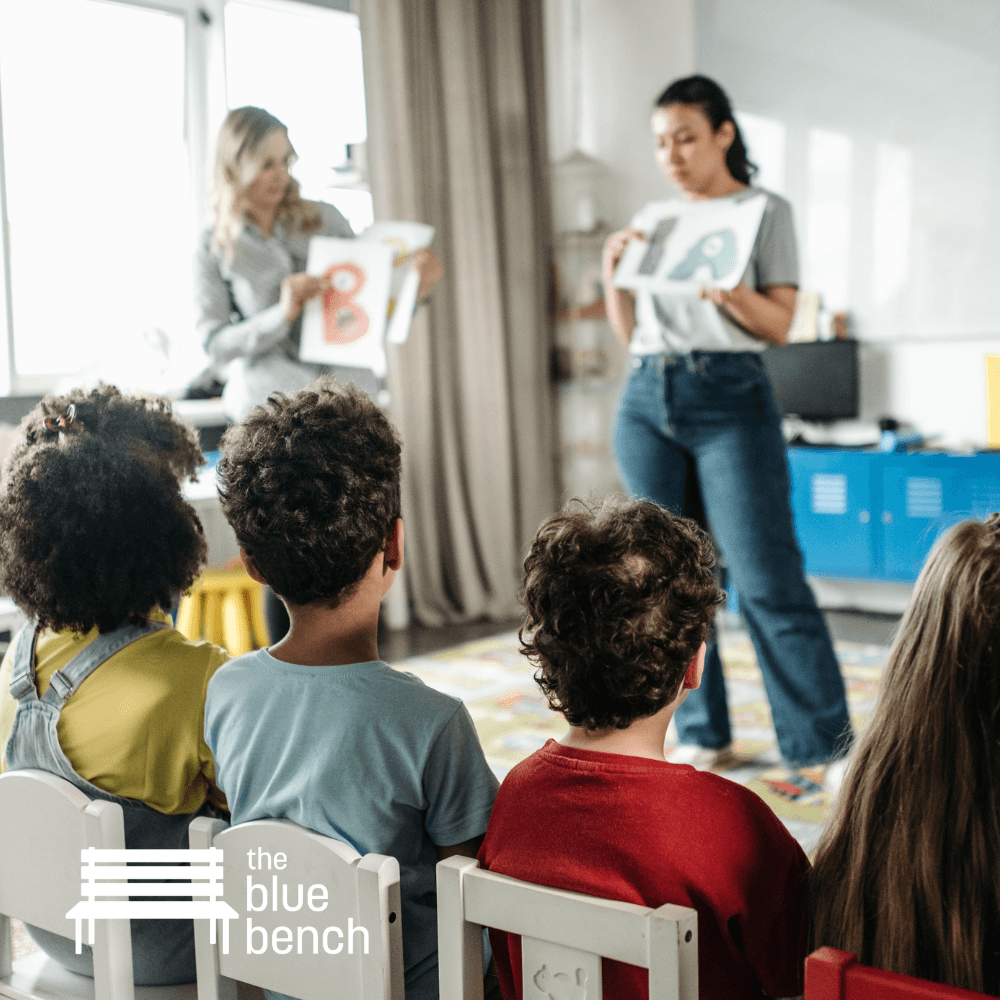At The Blue Bench, we believe that how we educate our youth today is the basis for how we, as a community, respond to sexual violence tomorrow.
Prevention education aims to stop sexual violence before it starts. This means addressing contributing factors at every level—individual, relational, community, and societal. Our Community Education programs empower people to recognize sexually inappropriate behavior, intervene in harmful situations, support survivors, and challenge harmful norms that blame, silence, or minimize survivors’ experiences.
Community Prevention Education means:
- Recognizing that we all play a role in preventing sexual violence
- Identifying sexually inappropriate behavior and risky situations
- Identifying potentially harmful situations and encouraging appropriate interventions
- Teaching consent and healthy relationships from a young age
- Challenging victim-blaming and rape culture
- Responding to survivors with empathy and belief
- Building confidence to speak up and intervene
Our programs are research-based, designed as multi-session offerings, and use diverse teaching methods. We tailor content to be culturally responsive and address the needs of the communities we work with. We collaborate with schools, businesses, parent groups, youth educators, service providers, alcohol-serving establishments, and more to create lasting, community-wide change.

